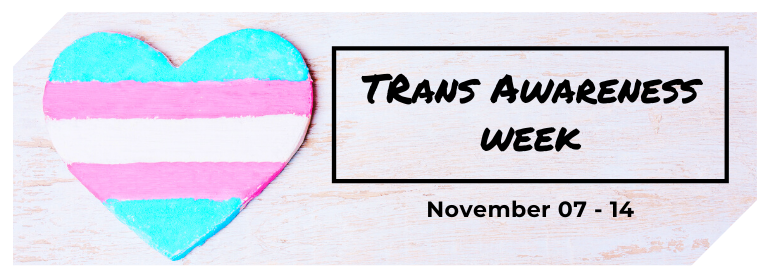Trans Awareness Week

I write the following blog as a cisgender gay man. I acknowledge I don’t have lived experience as a trans person. I do have some knowledge, from reading and from interacting with trans friends, clients and colleagues about their lived experiences. I offer this blog as a small step in educating, as we celebrate Trans Awareness Week.
Each year, Trans Awareness Week helps to increase the awareness of the trans community across the broader population – and to address issues and challenges members of the trans community continue to face.
Trans erasure and violence is a real thing. Just take a look at the 2021 ABS census and the LGBTIQA+ outrage that followed and you’ll get an idea of what I’m talking about.
As we celebrate Trans Awareness Week, from 7–14 November 2021, it’s perhaps a good time to remind ourselves about some of the wrong conceptions, assumptions and beliefs commonly held about members of the trans community.
Here are some:
1. Trans people are not necessarily gay or lesbian.
Being trans has nothing to do with sexuality. Trans people can be gay, lesbian, straight, bisexual, gender diverse, asexual, or gender fluid etc
2. We need to be respectful to trans people.
That means, in part, we need to get the terminology and language right. Trans people like being referred to as trans or transgender or as a trans woman or a trans man. Don’t refer to them as ‘trannies’, ‘transgendered’ or ‘the trans’. It’s just offensive.
Instead, encourage your trans friend, colleague, or acquaintance to share their pronouns.
3. Trans people are not simply people who just like dressing up in the clothes of another gender.
Gender expression is important to trans people just as it is to cis people. That means that, as they work their way towards aligning their gender with their authentic self, trans people may change their hairstyle, or wear different clothes, or jewellery, or get tattoos, or wear makeup. They may also change their name and pronouns etc. Being trans is far more complex than simply dressing up in clothes that have been traditionally aligned with a specific gender.
4. Trans people are not ‘born in the wrong body’.
They were assigned a gender at birth that simply doesn’t reflect their authentic self.
5. Similarly, it’s wrong to state things like: ‘they were born a girl but are a boy’ (or vice versa).
They weren’t. They were assigned a gender at birth that simply doesn’t reflect their authentic self.
6. Trans people haven’t fallen victim to the ‘radical left’ or to ‘gender theorists’.
Trans people generally know from an early age that they don’t align with the gender assigned to them at birth.
7. Don’t ever think it’s ok to ask a trans person about whether or not they’ve had ‘the surgery’.
It’s not ok! Many trans people have gender affirmation surgery – and many don’t. It’s none of your business whether they’ve had surgery or not, any more than it’s any of someone else’s business to ask if you’ve had an abortion or a vasectomy.
8. Some people will ask trans people question 5 in a different, but equally confronting way.
Do you still have a penis? How do you hide it? or Do you get periods? or How do you hide your breasts? As in the response to question 5, it’s none of your business. Simply don’t ask!
9. It’s also none of your business to ask about HRT or other things associated with being trans.
Imagine being trans and being asked about the effect of HRT on your sex life! Or the effect of HRT on your ability to get an erection or be sexually aroused in different ways. It’s none of your business! Don’t ask.
10. True fact: some trans men can have babies.
And some trans women will require prostate examinations. That’s why it’s important for professionals in all sorts of workplaces to be trained in LGBTIQA+ inclusion.
11. True fact: gender reaffirming surgery is currently not covered by Medicare in Australia.
Trans people who wish to undergo such surgery must pay for it themselves, simply to move away from their assigned gender towards one that aligns more closely to their authentic selves.







Responses